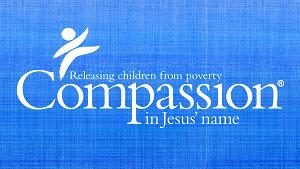This is mark Joseph “young” blog entry #168, on the subject of Praying for You.
A number of years ago I was playing quite a few venues and interacting with quite a few other Christan musicians, and something began to bother me. At first it was that we needed to support and encourage each other, and I took steps to do this, connecting venues with artists as I was able. However, I realized that no one had ever mentioned praying for me, and I had not mentioned praying for anyone else in music ministry, and that this was something I should remedy. I sent notes to–well, quite a few people whom I knew were involved in music ministry, and offered to pray for them on condition that they keep me informed of their situation (that’s going to be explained). A very few accepted my offer; one offered to reciprocate. Then over the next year or so they all dropped off the radar, as it were, no longer answering my inquiries about their situation, and today I again have no Christian musicians on my prayer list.
And that just is not right, so this is an attempt to fix that.
On the other hand, I don’t want it to seem as if I’m being exclusive. I have quite a few Christian ministers on my “friends” list who are not musicians, or not primarily musicians, and quite a few who are not involved in ministry but would want my prayers (and some of you are indeed already getting them, whether you want them or not). So I am putting this forward as a sort of “open offer”, that anyone who wants me to pray for him (or her or them) should contact me, and I will put you on my prayer list.
However, I have a few conditions.
The one idea that is not a condition is that you pray for me. I would not feel at all right saying that I will pray for you if you will pray for me–it’s too mercenary, I suppose. I certainly do not object to you praying for me, and if you wish for me to meet conditions similar to those I am about to state here, I will certainly endeavor to comply. Nor is it a condition that you support my Patreon or PalPal.me campaigns–a lot of people who need prayer don’t have money, although I’m sure that people who have a lot of money still need prayer (not something I really know from personal experience). I am certainly grateful to those of you who do support my efforts in any way at all, but I need to assure those who cannot do so or cannot justify doing so that they will not be treated the worse for that.
My conditions are based on II Corinthians 1:11, which in the Updated New American Standard Bible reads
…you also joining in helping us through your prayers, so that thanks may be given by many persons on our behalf for the favor bestowed on us through the prayers of many.
What I derive from that is the point that God wants us to agree in prayer, and answers prayers when more of us are agreeing, because that way when He answers there are more of us saying thank You to Him for the answer. That, though, means that if I am going to pray for you, I also have to know how God is answering those prayers. So this is how it works.
- You must connect with me through Facebook. If we are not already “Friends” send a “Friend Request”, and I’ll approve it and ask how we’re connected. Just tell me that you read this post and wanted me to pray for you, along with some idea of who you are (for example, pastor, Christian musician, Christian gamer, reader of my other materials). I am betting that I will already have some notion of who most people who want my prayers are, but I don’t always connect names to people quickly, so at least jog my memory. I do not really do e-mail–every few months I download a few hundred letters, throw most of them away, and see if there’s anything important in what remains. Facebook is the way I communicate.
- Tell me enough about your situation that I can pray intelligently. This is not Romper Room (and I pray for Sally, and Jeff, and Mary, and Mark….). If I’m to know how God answers these prayers, I have to be praying for something particular enough that you can tell me about the answer. I have a theological objection to those “unspoken” requests which I should probably discuss somewhere sometime, but as Paul says about people who pray in tongues in public meetings, if I don’t know what is being prayed, how can I say “amen”?
- Which of course brings up the final condition. Probably about once a month I’m going to get a reminder to drop you a note to ask what is happening. That’s so you can tell me what good things God has done and I can give thanks for them, and so you can update me regarding what I ought to be praying. If I miss a month, don’t worry–I’m still praying. If you miss a month, don’t worry, I’ll keep praying for a few months without hearing anything. However, after a few months I’ll decide that you’re not answering and I’ll drop you from the list. I can’t very well give thanks to God for answers to prayers on your behalf if you don’t tell me what God has done on your behalf. You are, of course, welcome to drop me notes between my reminders, either to let me know about God’s answers or to redirect my prayers. I do not want your impersonal newsletter; I want to interact with you directly, to hear from you what God is doing. If it’s not worth a few minutes to do that, you don’t really want my prayers.
So that’s the offer. I should caveat that the only people for whom I pray every day are my wife and myself (she because she deserves it, I because I need it); how often I pray for you will depend on a lot of factors including how many people ask for prayer, how serious I perceive your need, and the limits of the program that manages the prayer list. Obviously I am offering to pray for individuals, but the offer also extends to individuals who want me to pray for a ministry they represent, such as their band, who thus are promising to keep me informed regarding the band. I also don’t promise that I won’t give you advice if I think you’re asking for prayer about something with which I can help; it’s free advice, and you can decide whether it’s worth as much as you paid for it without offending me. You can also ask me to stop praying for you (which I assume you would do if my monthly queries are irksome) and I’ll take you off the list.
I think that covers it. Any questions?
[contact-form subject='[mark Joseph %26quot;young%26quot;’][contact-field label=’Name’ type=’name’ required=’1’/][contact-field label=’Email’ type=’email’ required=’1’/][contact-field label=’Website’ type=’url’/][contact-field label=’Comment: Note that this form will contact the author by e-mail; to post comments to the article, see below.’ type=’textarea’ required=’1’/][/contact-form]











